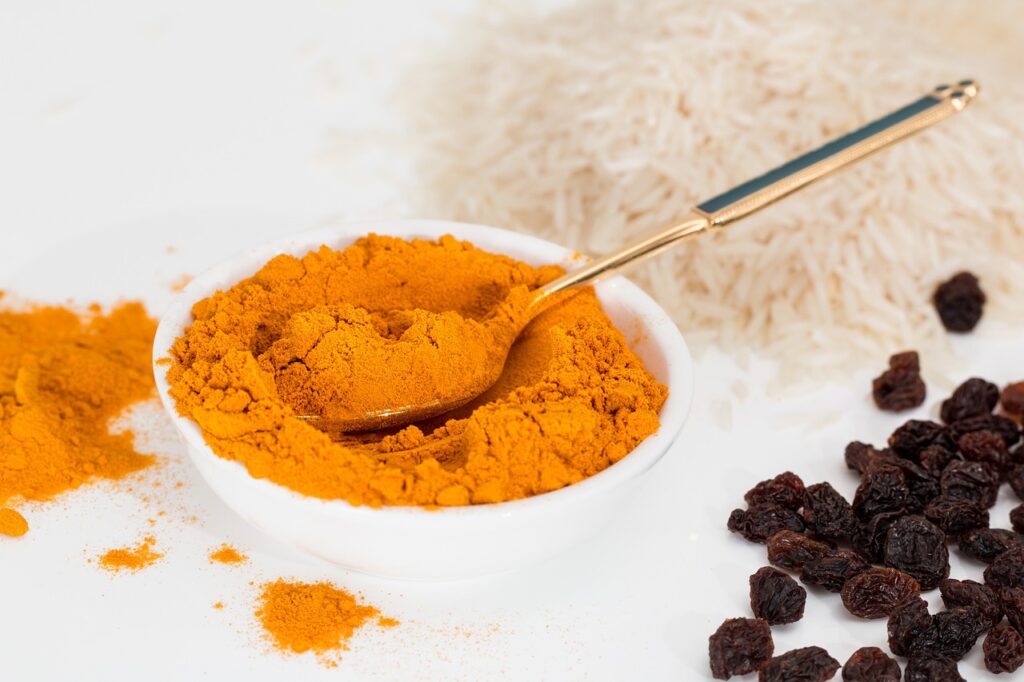The spice known as turmeric may be the most effective nutritional supplement in existence. Many high-quality studies show that turmeric has major benefits for your body and brain. Many of these benefits come from its main active ingredient, curcumin. Read on to find out what science says about turmeric and curcumin as well as their benefits.
What are turmeric and curcumin?
Turmeric is a spice that gives curry its yellow color. It has been used as a spice and medicinal herb in India for thousands of years. Recently, science has begun to support traditional claims that turmeric contains compounds with medicinal properties (1Trusted Source). These compounds are called curcuminoids. The most important is curcumin. The main active ingredient in turmeric is curcumin. It has strong anti-inflammatory effects and is a very powerful antioxidant.
1. Turmeric contains bioactive compounds with medicinal properties
However, the amount of curcumin in turmeric is not high. It’s about 3%, by weight. Most studies on this herb have used turmeric extracts, which contain mostly curcumin, with doses usually higher than 1 gram per day. It would be very difficult to reach this level by using turmeric as a spice in your food. This is why some people supplement. However, curcumin is poorly absorbed into your bloodstream. In order to experience the full effects of curcumin, its bioavailability (the rate at which your body absorbs a substance) needs to improve.
It helps to swallow it with black pepper, which contains piperine. Piperine is a natural substance that increases the absorption of curcumin by 2,000%. In fact, the best curcumin supplements contain piperine and this makes them quite effective. Curcumin is also fat soluble, which means it breaks down and dissolves in fat or oil. So it may be a good idea to take curcumin supplements with fatty foods.
2. Curcumin is a natural anti-inflammatory compound
Inflammation is incredibly important. It helps fight foreign invaders and helps your body repair damage. While acute, short-term inflammation is beneficial, it can become a concern if it becomes chronic and attacks your body’s own tissues. Scientists now believe that chronic low- levels of inflammation may play a role in certain health conditions and diseases.
3. Turmeric can increase the antioxidant capacity of the body
Oxidative damage is thought to be a mechanism behind aging and many diseases. It involves free radicals, highly reactive molecules with unpaired electrons. Free radicals react with important organic substances, such as fatty acids, proteins, or DNA. The main reason antioxidants are so beneficial is that they protect your body from free radicals. Curcumin is a powerful antioxidant that can neutralize free radicals due to its chemical structure.

4. Curcumin can increase brain-derived neurotrophic factor
Before scientists had a better understanding of neurons, it was believed that they were unable to divide and multiply after infancy. However, they now know that this is not the case. Neurons are able to form new connections, and in certain areas of the brain, they can grow and increase in number. One of the main drivers of this process is the brain-derived neurotrophic factor (BDNF). It is a gene involved in the production of proteins responsible for promoting the life of neurons.
5. Curcumin may reduce your risk of heart disease
Heart disease is the number one cause of death in the world. Researchers have studied it for decades and have learned a lot about why it happens. Surprisingly, heart disease is incredibly complex and many different things contribute to it. Curcumin can help reverse many steps in the heart process. The main benefit of curcumin in heart disease is improving the function of the endothelium, the lining of your blood vessels.
6. Curcumin may be beneficial in treating Alzheimer’s disease
Alzheimer’s disease is the most common form of dementia and may contribute to 70% of dementia cases. Although treatments are available for some of its symptoms, there is still no cure for Alzheimer’s. That’s why it’s so important to prevent this from happening in the first place. There may be good news on the horizon because curcumin has been shown to cross the blood-brain barrier.